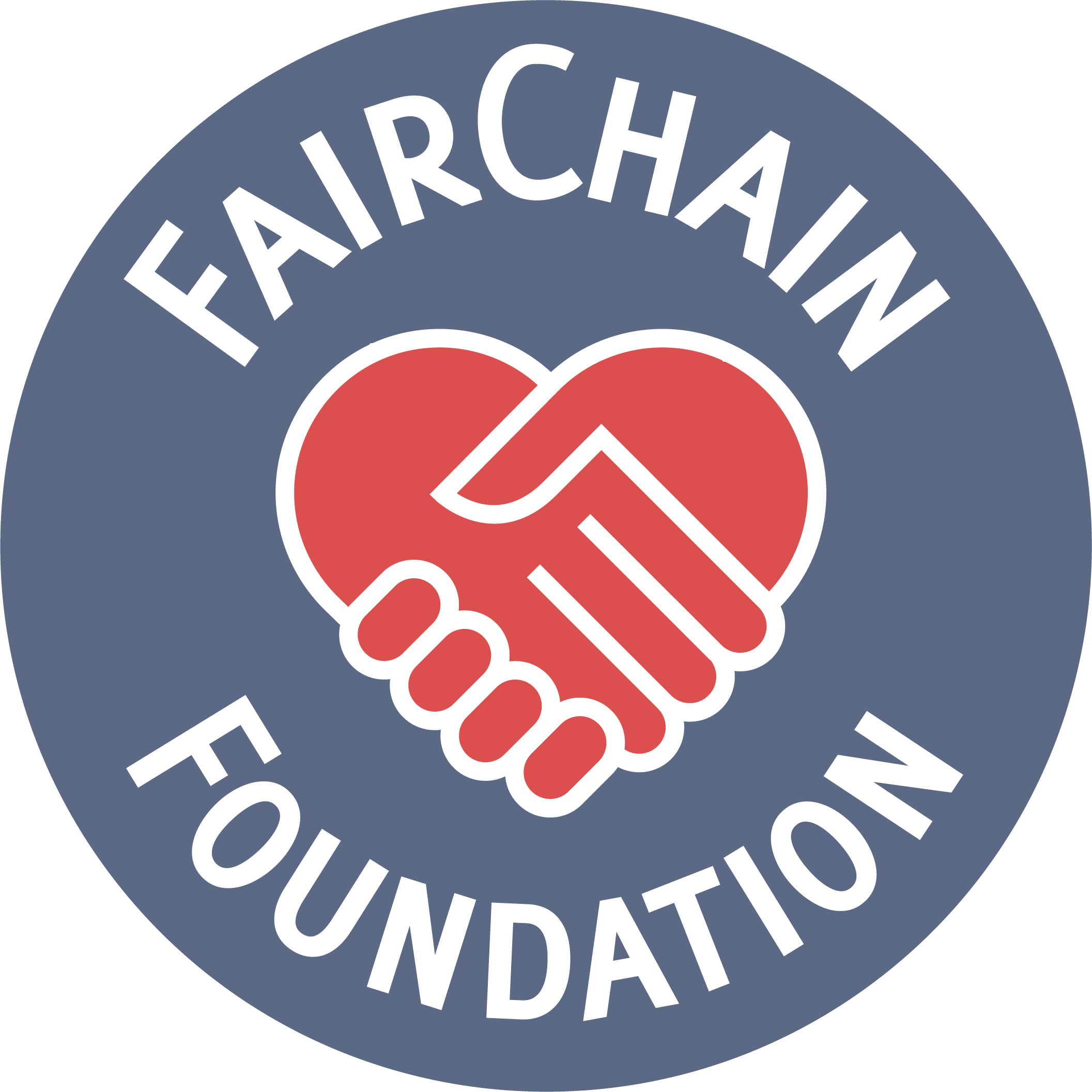SET AN IMPACT FOUNDATION
Our mission is to make development aid redundant because all value is distributed fairly across the global supply chain. To do so, your brand needs to set the ground ready for such a change.
CHOOSE YOUR CHANCE, AND
SET THE GROUND FOR IT
We will design a theory of change together and decide what infrastructure is needed to achieve the impact events.
THEORY OF CHANGE
This is the starting point. We will sit together and help you decide what you want to change for the better…

Image from Marc Jans, 2017
SUPPLY CHAIN COCKPIT
Our Digital platform with an overview of every step in the value chain for full transparency.
The idea is that from the platform the supply chain manager can send a batch of products to the next step (for instance from washing to hulling to roasting to packaging) and gets a pricing proposal from the actor in the next step.
Insight:
“As a purposeful brand, we need full traceability across the supply chain, showing every transaction to every actor. However, our current ERP system does not enable us to do that.”
How does it work?
The data that the actors put in the system via their screens end up in the FairChain database. The asset tracker shows an overview of the data. Once a batch is submitted at any step of the supply chain, the actor of the next step sees the batch and can place a pricing proposal. The brand can approve the price and the process continues.
All the features you need
- Compatible with harvest collection apps such as Farm Force
- Dashboard for assets
- Asset tracker
- Asset management
- User roles and permissions

PRODUCER APP
The producer app gives producers in the first mile of the supply chain a digital identity. This app is the touchpoint between the producers and our system.
Insight:
Farmers require a digital identity to be able to onboard the FairChain programmes for radical transparency and radical engagement. Next to this, there should be a place for producers to announce how much of a product they have for sale.
How does it work?
Producers sign up via the app. If they don’t have access to internet or a smart phone yet, a local guide with a smartphone registers them. This creates a digital identity for the producer in FairChain system.
During the sign up process, we collect personal and production-related information, such as plot size, number of trees, number of family members and so on.
When a producer has some products to sell, they submit the type of the product and the amount on the app. Brands will see the availability and bid an offer. If the producer accepts the bid, the deal is done.
Another feature of the app is the Blockchain token wallet. Producers receive tokens from the brand or consumers. The tokens can be redeemed via our partners.
Via the education section, producers can watch educational videos about finance, harvest improvement and farming.
Last but not least, producers can receive messages from consumers and brands and respond to them.
All the features you need
- Producer registration
- Data collection (farmer photo, name, location, plot size, …)
- Direct communication with the brand and/or consumers
- Access to Blockchain wallet
- Education videos
- Harvest submission
- Harvest history

ACTORS' SCREEN
We create a different web app screen for each actor in the supply chain. With this app, an actor can create a batch, process it and submit it.
The actor gets access to their Blockchain wallet. They can receive and spend tokens via this wallet.
How does it work?
An actor sees a batch is ready to be processed. The actor makes a pricing proposal and when the brand approves it, the actor can start processing.
All the features you need
- Clear Dashboard
- Batch Creation
- Batch Management
- Report Generator
- Blockchain wallet

DATA COLLECTION TOOLS
We choose the best existing data capturing tools such as FarmForce depending on the type of the project to feed data to our system. We collect data to grasp the market baseline, living income standards and check the impact events.
Insight:
Collecting the correct data correctly is an important part of the process to measure the real outcome of a positive impact.
How does it work?
We collect data through different software and channels, sometimes as simple as a spreadsheet. The data enters our system and we will manage it there.
For example, when a tree is being planted, we capture the data by a spreadsheet, uploading a real photo, the geographical location and the person who received it.
BRAND'S SCREEN
When a brand decides to support an impact programme (e.g. Tree Planting), they can do so by logging in to their admin panel a.k.a Brand’s screen. They can buy tokens, support an impact programme, generate token QR codes, see the reports and much more.
Insight:
Brands need an admin panel to see how their impact-driven campaign doing, start new campaigns and manage their blockchain tokens.

